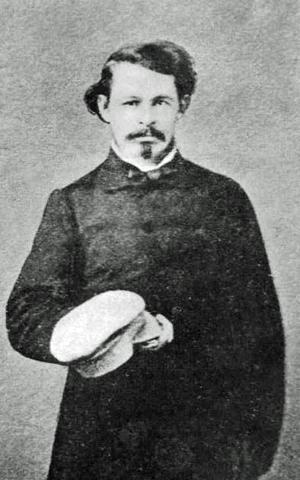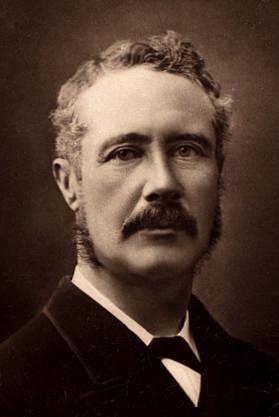The Taiping Rebellion Part V — The Ever Victorious Army and the Fall of the Heavenly Kingdom.C
The Taiping Rebellion Part V — The Ever Victorious Army and the Fall of the Heavenly Kingdom.Click for Part I, Part II, Part III, and Part IVIn the 1850’s the war between the Taiping rebels and the Qing Empire ground into a slow and bloody stalemate. As a result, both sides resorted to the targeting of civilians and farms which would lead to the death of millions through massacre, famine, and disease. In 1860 a Taiping general named Li Xiucheng came up with a bold plan to end the stalemate. At the time the Chinese Imperial Army had a 200,000 man force outside of the Taiping capital of Nanking. Xiucheng’s plan was to attack the city of Hongzhou with a 200,000 man army of his own, drawing the Imperial Army away from Nanking, where he would then ambush and destroy them. The plan worked, and the Taiping rebels ambushed, surrounded, and destroyed the Imperial Army near Nanking. From there Rengan’s plan was to capture Shanghai, the largest and most important port in all of China. Xiucheng planned to purchase modern weapons from the foreign traders of Shanghai, then organize a fleet of steamships which would land in the north so that his army could attack Beijing.When Li Xiucheng arrived at Shanghai he only faced only 60,000 Imperial soldiers. However among them was a 3,000 man force under the command of an American mercenary named Frederick Townsend Ward. Ward was a former Texas Ranger and experienced soldier of fortune who had seen action in Mexico, the Crimean War, Central America, and China. He personally trained his 3,000 man unit in modern western style military tactics and had them armed with modern firearms as well as a contingent of artillery. They were also commanded by foreign officers, each of whom were veterans of various wars in Europe and the America’s. When in combat against Ward’s force the Taiping rebels didn’t stand a chance. At the time the rebels, as well as the Imperial Army, were mostly armed with spears, swords, and obsolete matchlock muskets. Despite being outnumbered, the discipline and superior firepower of Ward’s unit always won the day against the Taiping rebels. Li Xiucheng’s offensive quickly ground to a halt.The Siege of Shanghai lasted almost two years. During that time the Imperial Army was able to hold off the Taiping Rebels, especially with the help of Ward’s mercenary unit. The tide of battle finally changed when 7,000 British and French soldiers entered the fray. Originally the British and French were neutral in the conflict. However both nations profited handsomely in the opium trade, a trade which the Taiping rebels sought to outlaw. Needless to say, it was in their interest to ensure that Shanghai did not fall. As Taiping rebels built a bridge to cross Yangtze River they came under intense fire from British and French warships. A massive counterattack of Imperial, British, and French forces easily scattered to Taiping Army. It was the beginning of the end.Ward’s mercenary unit would be increased to 5,000 men and were named “The Ever Victorious Army”. Unfortunately Ward himself was killed on September 20th of 1862. Command of the Ever Victorious Army fell to a former British Army officer and Crimean War veteran named Charles Gordon. Under Gordon, The Ever Victorious Army served as the elite shock troops of the Imperial Army. In early 1863, the Imperial Army was on the offensive, with The Ever Victorious Army serving as the spearhead of most of its assaults. Soon Taiping held city after city returned to Imperial control. Treatment of the Taiping rebels was brutal, most who were captured were tortured and executed en masse. In the Guandong Province alone over 1 million Taiping rebels were executed by the Imperial Army.In March of 1864, 500,000 Imperial Troops laid siege to the Taiping capitol of Nanking, which was defended by 400,000 exhausted rebels. By then the Imperial Army had totally reformed in a modern army, equipped with ingenuously crafted firearms patterned after European weapons. For months the Imperial Army bombarded the city. Finally in June Imperial troops stormed Nanking, fighting a block by block, street by street battle that slowly pushed the rebels back. During this time, the rebel’s leader, Hong Xiquan died of illness due to eating spoiled food during the siege. The self proclaimed brother of Jesus, and founder of the rebellion was dead. With him died the Taiping Heavenly Kingdom.Rebel resistance quickly melted away. On the last day of battle Imperial forces slaughtered over 100,000 rebels as they attempted to flee the city. For over a week Imperial soldiers looted the city and murdered its inhabitants. They then set fire to the city, a fire which would burn throughout all of the month of July.The several hundred thousand Taiping rebels who remained quickly melted away. Most who were not captured and executed returned to their homes and former lives, hopeful that they would not be discovered by the Qing Empire as former traitors. Many warlords took command of their own factions of the Taiping Army to continue to the fight. Many former rebels joined the handful of other rebellions that were occurring throughout China as well. Thousands more formed marauder armies who harassed and looted the Kingdoms of Siam and French colonies in Indochina (Vietnam). Many more left Asia altogether, immigrating to California in search of fortune and a fresh start.The last Taiping rebels surrendered in 1871. By then the war had lasted over 20 years, and cost the lives of around 20 - 30 million people, most of whom were civilians. Today it rivals World War I in terms of casualties, and typically ranks in the top five bloodiest wars in history. -- source link
#history#taiping rebellion#chinese history#china#rebellion#war#battle#mercenaries



